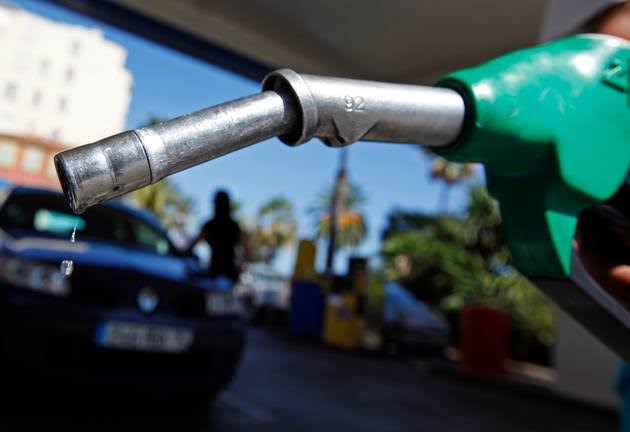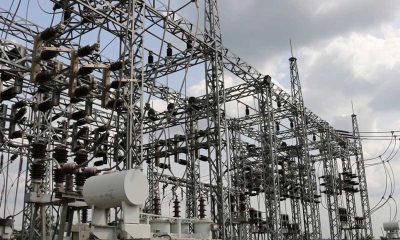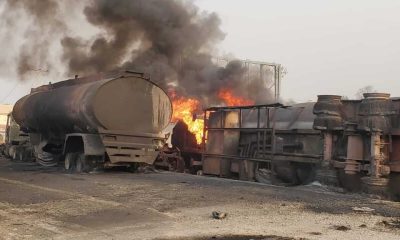Special Features
Nigeria’s High Fuel Costs And Scarcity Crisis: Causes And Impact

Eko Hot Blog reports that Nigeria, a nation with abundant oil reserves, is grappling with a fuel crisis of unprecedented proportions.
The combination of soaring fuel prices and widespread scarcity has sent shockwaves through the nation, affecting citizens, businesses, and the economy at large.
Editor’s Pick
- Bello and Enenche: A Tale of Two Lions
- Breaking Boundaries: Tunde Onakoya’s Historic 60-Hour Chess Marathon
- Chibok: Destroying The Future of Our Tomorrow?
Nigeria, as Africa’s largest oil producer, should ideally have a stable and abundant fuel supply.
However, a myriad of factors has contributed to the current crisis.
The causes of this high cost and scarcity are highlighted below:
Fuel Subsidy Removal: The government’s decision to remove the fuel subsidy has led to a sharp increase in prices.
Causing a ripple effect across various sectors of the economy.
Recall that the current administration of President Bola Tinubu removed the fuel subsidy a few days after his inauguration into office.
Supply Chain Disruptions: Disruptions along the fuel supply chain, including logistical challenges, refinery inefficiencies, and distribution bottlenecks, have exacerbated the scarcity issue.
Economic Challenges: Nigeria’s economy has been under strain due to various factors.
Including inflation, currency devaluation, and unemployment, further aggravating the fuel crisis.

Long queue at filling stations
Impact on Citizens:
The high cost and scarcity of fuel have had a profound impact on the daily lives of Nigerians.
Transportation Woes: Commuters face increased fares as transport operators pass on the higher fuel costs, making travel less affordable for many.
According to a report in the Punch Newspaper, some residents lamented the hike in the cost of transport.
This is due to the ongoing fuel scarcity in different parts of Lagos and Ogun states.
The residents told PUNCH Metro in separate interviews on Tuesday that the scarcity had affected their daily activities in Ikeja, Ojodu Berger, Mowe, and Magboro areas.
Hence, this has led to an increase in bus fares to their various destinations. The transportation challenge also affect the whole nation.
Power Outages: Many businesses and households rely on generators for electricity due to inconsistent power supply from the national grid.
Moreso, the scarcity of fuel has worsened power outages, affecting productivity and quality of life.
Inflationary Pressures: The rising cost of fuel has led to an increase in the prices of goods and services across the board, further eroding the purchasing power of citizens.
Government Response:
The Nigerian government has acknowledged the severity of the crisis and has taken some steps to address it:
According to Punch, the Nigeria National Petroleum Corporation(NNPC) blamed the lingering fuel scarcity in the country on panic buying and sharp practices by some petroleum marketers who are exploiting the present situation to make more money.
The company also vowed that the fuel queues across the country would end next week, noting that it had enough litres of fuel to end the scarcity.
However, Petroleum marketers, disagreed with the position of the NNPC, insisting that inadequate supply was a major reason for the persisting fuel scarcity.

Citizens struggle to get fuel amidst scarcity
Steps to be taken
Subsidy Reevaluation: There have been discussions within the government about reinstating fuel subsidies or implementing targeted subsidies to cushion the impact on vulnerable citizens.
Investment in Refineries: Plans to revamp existing refineries and build new ones have been announced to enhance domestic refining capacity and reduce dependency on fuel imports.
Price Regulation: The government is considering measures to regulate fuel prices to prevent excessive profiteering by distributors and retailers.
Way Forward:
Addressing Nigeria’s fuel crisis requires a concerted effort from all stakeholders:
Transparent Policies: The government needs to communicate its policies clearly and transparently to restore confidence in the fuel market.
Infrastructure Investment: Investing in infrastructure upgrades and modernizing the fuel supply chain will help alleviate bottlenecks and improve efficiency.
Diversification: Diversifying the energy mix by promoting renewable energy sources can reduce dependency on fossil fuels and mitigate the impact of future fuel crises.
Further Reading
- Garri Price Skyrockets To ₦72,000 Per Bag
- Market Survey Reveals Drastic Drop In Cooking Gas Prices
- Hamas Delegation In Cairo As Cease-Fire Talks Escalate Amidst Israeli Threats
Conclusively, Nigeria’s current fuel crisis underscores the urgent need for comprehensive reforms to ensure a reliable and affordable fuel supply for its citizens.
Without decisive action, the socio-economic consequences of the crisis will continue to deepen, posing significant challenges to Nigeria’s development aspirations.
Click here to watch our video of the week
Advertise or Publish a Story on EkoHot Blog:
Kindly contact us at ekohotblog@gmail.com. Breaking stories should be sent to the above email and substantiated with pictorial evidence.
Citizen journalists will receive a token as data incentive.
Call or Whatsapp: 0803 561 7233, 0703 414 5611


















